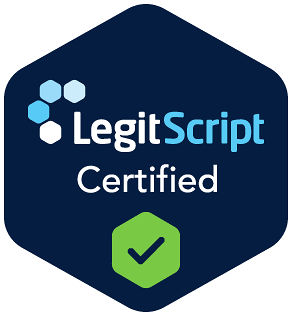Drug Addictions We Treat In Metro Atlanta, GA
Home / Addictions We Treat
These substances can lead to physical dependence and changes in brain chemistry and cause long-term damage to physical and mental health, relationships, and overall quality of life.
Southeast Detox is here to help. Our network of top-rated drug rehab centers features a unique combination of the most effective treatments available to treat addiction.

Substance Abuse in Georgia
Georgia is undergoing a significant substance abuse problem. Opioids are the greatest concern. The Georgia Department of Public Health stated 2,390 drug overdose deaths in 2021. Of those, most were related to opioids, while 57% were fentanyl-related overdoses. Methamphetamine is also a growing concern. The state saw a 67% increase in meth-related deaths between 2014-2018.
The state has taken action to address substance abuse in Georgia. The steps include developing a prescription drug monitoring program. Officials are also making the public more aware of treatment and recovery services. Yet, work must be done to combat this rise in substance abuse disorders.
The state of Georgia has made data available to the public so that those facing substance abuse disorders and their loved ones know how important it is to bring attention to the need to get it under control.
- Binge drinking among adolescents and young adults aged 9-25 continues to rise.
- From 2012-2017, deaths from synthetic opioids went from 61 to 419 individuals.
- In 2016, more than 19,000 individuals statewide were arrested for DUI.
- The number of people admitted to substance abuse rehab centers increased by 11% between 2017 and 2019.
Because substance abuse and mental health tend to go hand-in-hand, 17% of adults with a substance abuse disorder were diagnosed with a mental illness.
Stimulant Abuse
Stimulants speed up messages between the brain and body and cause individuals to feel more awake, alert, confident, and energetic. Large doses can cause over-stimulation, which leads to anxiety, panic, seizures, headaches, stomach cramps, aggression, and paranoia.
- Nicotine
- Amphetamines
- Cocaine
- Methamphetamines
- Methcathinone
- Mephedrone
Opiate Abuse
Opiates are drugs that either derive from the opium poppy plant or are synthetically produced. They attach to the opioid receptors in the brain and the central nervous system. Opiates are highly addictive because of the relief they can bring. They reduce pain, bring on feelings of drowsiness, and create a sense of euphoria in the body. Misuse of illegal or prescription pill opiates can lead to an overdose, respiratory paralysis, and death.
Depressant Abuse
Depressants are drugs that slow down the central nervous system. The result is feelings of relaxation and sedation. Typically, medical providers prescribe depressants to treat anxiety, sleep disorders, and other medical-related conditions. However, depressants can lead to severe health problems and even death when abused.
Depressants include:
Hallucinogens
Hallucinogens alter a person’s perception, mood, and thought patterns. Whether naturally occurring or produced synthetically, they affect the neurotransmitters in the brain. Abusing hallucinogens can cause long-term psychological effects on an individual’s mental health.
Hallucinogens include:
- LSD
- Psilocybin (Mushrooms)
- DMT
- Mescaline
- PCP
- Ecstasy
- Ketamine
The Importance Of Addiction Treatment
Treatment for substance abuse is necessary because it helps individuals who struggle with addiction to overcome their substance dependency. Learning coping skills to manage cravings, receive medical care for withdrawal symptoms, and understand triggers that could lead to relapse is also essential. In addition, treatment provides a safe and supportive environment where individuals can understand the root cause of their addiction and address trauma and other underlying issues.
With therapy, medication, and evidence-based treatment, individuals can achieve long-term recovery and improve their overall health. They will also learn to maintain positive relationships and set goals for a productive life.
Your Recovery Starts Here
Our admissions team is ready 24/7 to guide you through the process, from admission to coordinating travel, treatment programs, and more.




